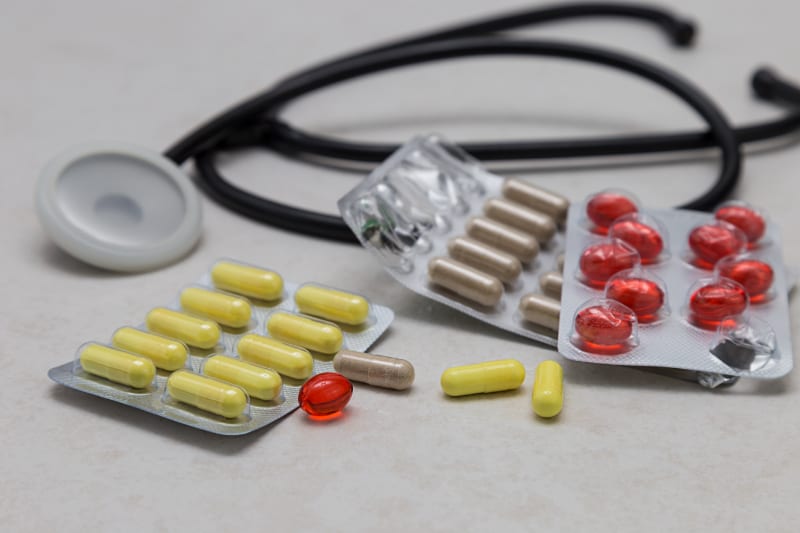Pharmaceutical marketing can be tough. There are so many rules and regulations in place for marketing prescription drugs. Not to mention that there are litigious attorneys who can come after pharma companies. However, it is not as daunting as it may appear. There are still plenty of tips and strategies available for you when it comes to marketing pharmaceutical products. We can help you market your products to physicians who prescribe them and patients who may need them.
In this article, our marketing experts provide the professional tips you need to know for any excellent health care marketing strategy. We will provide a combination of digital marketing and traditional marketing tactics for you to try.
What is Pharma Marketing?
- 1 What is Pharma Marketing?
- 2 Tips for Pharmaceutical and Drug Marketing
- 2.1 Utilize Social Media Marketing
- 2.2 Build Relationships with Physicians
- 2.3 Always Offer Free Samples
- 2.4 Don’t Be Afraid of New Technology
- 2.5 Create a Professional Website
- 2.6 Produce Quality Website Content
- 2.7 Try Guerrilla Marketing
- 2.8 Connect with your Customers’ Emotions
- 2.9 Reach Doctors through Online Communities
- 2.10 Utilize Visual Aids
- 2.11 Go to Conferences and Events
- 2.12 Execute Pharmaceutical SEO
- 2.13 Humanize Your Company
- 3 Pharma Marketing Services at SEO Design Chicago
- 4 Frequently Asked Questions About Pharmaceutical Marketing
- 4.1 1. What are the main legal and regulatory considerations for pharmaceutical marketing?
- 4.2 2. Should pharmaceutical companies focus marketing efforts on doctors or patients?
- 4.3 3. How much should a pharmaceutical company budget for marketing?
- 4.4 4. What digital marketing strategies work best for pharmaceutical companies?
- 4.5 5. How can pharmaceutical companies build trust and overcome negative perceptions?
- 4.6 6. What role do medical conferences and events play in pharmaceutical marketing?
- 4.7 7. How do I measure the success of pharmaceutical marketing campaigns?
Pharmaceutical marketing is a term that encompasses both the digital and traditional marketing strategies undertaken to attract new patients and increase brand awareness for a new drug, drug company, or treatment plan.
The goal of pharma marketing is to get the pharmaceutical products, often drugs, in front of the right audience. Pharma marketing can be used to either target the physicians who prescribe the drug or treatment plan, or it can be used to target the patient or consumer directly. However, it is more common for pharmaceutical companies to target the physicians, rather than the consumer.
The pharmaceutical industry is fiercely competitive. In 2019, the mean marketing of U.S. pharma companies was $12.5 million. In fact, many of the major United States pharmaceutical companies spend more of their budget on healthcare marketing than they do developing their products. That is why it is important to invest in a professional marketing strategy for your pharmaceuticals.
Tips for Pharmaceutical and Drug Marketing
Let’s discuss some tips you can utilize as you formulate your own pharmaceutical marketing strategy.
Utilize Social Media Marketing
These days, everyone – even pharmaceutical companies – should be utilizing social media marketing. Social media is an excellent way to increase awareness for your pharmaceutical products, and develop a relationship with both physicians and patients. The best strategy is to produce both promotional content and also content that physicians and patients can use as a resource to learn more about your pharmaceuticals.
Build Relationships with Physicians
One of the keys to pharmaceutical marketing is building relationships with physicians. This strategy is called relationship marketing. Physicians are more likely to prescribe pharmaceutical products to their patients from representatives and companies who they trust. That’s why these relationships are so important.
Always Offer Free Samples
One of the most common traditional marketing tactics is to offer free samples of your products to physicians for them or their patients to try. Doctors are more likely to prescribe a product they have tried themselves or their patients have tried. However, some practices and healthcare networks have banned their physicians from taking free samples, so be sure to do your research beforehand.
Don’t Be Afraid of New Technology
Doctors tend to jump on new technology trends early. For example, they were some of the earliest adopters of pagers, cellphones, and PDAs so they could stay in touch with their patients and practices as quickly and easily as possible. These days, you can utilize Zoom and other new technology like social media to stay in touch with your clients.
Create a Professional Website
A professional, upstanding web presence is necessary for every pharmaceutical company. You will want to utilize the services of web design consultants to help you.
Produce Quality Website Content
People are much more likely to take a pharmaceutical that they have knowledge about and trust. One way to instill this trust is by providing plenty of quality information to the target audience of your drug. Your website should clearly explain the benefits of the drug, any possible side effects, the recommended dosages, data from clinical trials, safety information, and warnings about any associated risks. Producing high-quality content for your website is not only helpful for your visitors and customers, but it can also help improve your search rankings.
Try Guerrilla Marketing
If traditional marketing strategies aren’t working, you can try a different tactic: guerrilla marketing. This is an aggressive tactic, but it can be effective. This is when you target your customers in a direct and unexpected, sometimes surprising, way. It can be risky, but worth it.
Connect with your Customers’ Emotions
One of the best ways to market pharmaceuticals is to connect with your potential customers’ feelings and emotions. For example, if you sell an anti-anxiety medication, perhaps you can start an online community for your customers to share their anxieties and how they ease them. There are several different ways you can connect with your customers on an emotional level and as a result, have them invest themselves emotionally in your product.
Reach Doctors through Online Communities
If you are looking for a way to connect with more doctors directly, try reaching them through online communities. As mentioned previously, physicians are oftentimes early adopters of new tech. They are always connecting with other doctors on social media platforms and other professional networks. This is an ideal way to contact physicians. You can meet them where they are and have conversations with them about your product.
Utilize Visual Aids
There are several ways you can use visual aids to successfully market your pharmaceutical products. The first way is in your online content. Readers prefer to see visuals rather than just large chunks of text. Another way you can use visuals is by creating posters or other visual aids that your doctors can hang in their offices. This is basically free advertising for you, and free decorations for them! It’s a win-win. Potential customers might see the posters and become interested in your products.
Go to Conferences and Events
Another excellent place to reach physicians is at medical conferences and events. You will get the chance to interact with doctors directly and to get feedback on your product and how you are marketing it.
Execute Pharmaceutical SEO
What keywords might someone search that would lead them to your product? For example, if you make a drug that treats pain, you might want to optimize your website for keywords like “pain relief.” This is just one way you can utilize pharma SEO to draw more web traffic to your site, and hopefully, find new customers. An SEO agency can help you use expert search engine optimization approaches into your website.
Humanize Your Company
We all know that there has been some not-so-great attention on Big Pharma in the past. That’s why it is so important to humanize your pharmaceutical company as part of your overall marketing strategy. Your potential customers will be more likely to purchase your product if they feel a connection to your company and don’t simply view you as drug manufacturers. There are several ways you can go about achieving this.
The first way is by highlighting people who work for your company and why on your social media channels. Another way is by sharing testimonials from happy patients who use your products on your website. Customers are more likely to be influenced by testimonials in the patient’s own words for your products helped to improve their quality of life. This is an extremely effective marketing tactic, particularly for pharmaceutical products.
Pharma Marketing Services at SEO Design Chicago
SEO Design Chicago’s expert marketing team has experience working in the pharma industry and can create a winning content marketing approach for your pharmaceutical company. Contact us today!
Frequently Asked Questions About Pharmaceutical Marketing
1. What are the main legal and regulatory considerations for pharmaceutical marketing?
Pharmaceutical marketing is heavily regulated by the FDA and must comply with strict guidelines. All claims must be substantiated by clinical data, and promotional materials must include fair balance of benefits and risks. Direct-to-consumer advertising requires specific disclosures about side effects and contraindications. Marketing to healthcare professionals must follow guidelines about gifts, samples, and educational content. Off-label promotion is generally prohibited, and all materials may need FDA review. Working with experienced pharmaceutical marketing agencies and legal counsel is essential to ensure compliance. Violating these regulations can result in significant fines, warning letters, and damage to brand reputation.
2. Should pharmaceutical companies focus marketing efforts on doctors or patients?
The approach depends on your specific drug and market strategy. Traditionally, pharmaceutical companies have focused primarily on healthcare professionals since they make prescribing decisions. This B2B approach involves building relationships with physicians through educational content, clinical data, and professional interactions. However, direct-to-consumer (DTC) marketing has grown significantly, especially for lifestyle drugs and chronic conditions where patients actively seek treatment options. Many successful campaigns use a dual approach: educating physicians about clinical benefits while creating patient awareness that drives demand. Consider factors like prescription requirements, patient involvement in treatment decisions, and your marketing budget when choosing your focus.
3. How much should a pharmaceutical company budget for marketing?
Pharmaceutical marketing budgets vary significantly based on company size, product portfolio, and market competition. According to industry data, major U.S. pharmaceutical companies spend an average of $12.5 million on marketing, with many spending more on marketing than R&D. For smaller pharma companies, marketing typically represents 15-25% of total revenue. Digital marketing should account for 40-60% of the marketing budget, with the remainder split between traditional channels, conferences, and relationship-building activities. New product launches may require 30-40% of projected revenue in the first year. Consider your target market size, competition level, and regulatory requirements when setting your budget.
4. What digital marketing strategies work best for pharmaceutical companies?
Effective pharmaceutical digital marketing includes professional website development with comprehensive product information, search engine optimization (SEO) targeting relevant medical keywords, content marketing through educational blogs and resources, and social media presence on platforms where healthcare professionals engage. Email marketing to opted-in healthcare professionals, webinars and virtual conferences, online medical journal advertising, and programmatic advertising targeting specific healthcare audiences are also effective. Ensure all digital content complies with FDA regulations and includes proper risk-benefit information. Track metrics like physician engagement, website traffic from target audiences, and prescription data to measure ROI.
5. How can pharmaceutical companies build trust and overcome negative perceptions?
Building trust requires transparency, authentic communication, and demonstrating genuine commitment to patient outcomes. Share clinical trial data openly, acknowledge limitations and side effects honestly, and highlight your company’s research investment and patient assistance programs. Humanize your company by featuring real employees, their motivations for working in healthcare, and patient success stories (with proper permissions). Engage in community health initiatives, support medical education, and participate in patient advocacy. Respond thoughtfully to concerns and criticism. Focus on the medical need your products address and how they improve patient lives rather than just commercial benefits.
6. What role do medical conferences and events play in pharmaceutical marketing?
Medical conferences are crucial for pharmaceutical marketing as they provide direct access to key opinion leaders, specialists, and decision-makers in your therapeutic area. These events offer opportunities for product demonstrations, clinical data presentations, and relationship building with healthcare professionals. Benefits include immediate feedback on products and marketing approaches, networking with thought leaders who can influence prescribing patterns, and staying current with competitive landscape and emerging trends. Plan conference participation strategically by identifying events that attract your target physician audience, preparing compelling presentations with strong clinical data, and following up with contacts made at events.
7. How do I measure the success of pharmaceutical marketing campaigns?
Pharmaceutical marketing success should be measured through multiple metrics aligned with your campaign objectives. Primary metrics include prescription volume increases, market share growth, physician awareness and recall of your brand, and website traffic from target healthcare professional audiences. Secondary metrics include social media engagement from medical professionals, email open rates and click-through rates for healthcare audiences, conference booth traffic and lead generation, and brand sentiment among key opinion leaders. Use prescription data, physician surveys, and digital analytics to track performance. Establish baseline measurements before campaigns launch and monitor both short-term engagement and long-term prescription trends to accurately assess ROI.








Contact Us today!